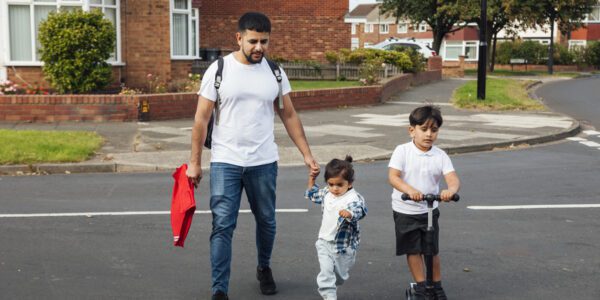-
Professor Ruth PatrickUniversity of York
-
Alex CleggResolution Foundation
-
Tom LeeUniversity of York
-
Dr Beth Watts-CobbeHeriot-Watt University
-
Dr Ciara FitzpatrickUlster University
-
Dr Joe PardoeUniversity of Salford
Project overview
This project will explore the extent of the devolution of social security within the UK and the realities, risks, and opportunities this poses for families with dependent children.
Why this project is important
The UK spends more on working-age social security than education, or the police and defence combined. Social security is the policy instrument most directly able to reduce poverty. However, discussions about the future of UK social security often fail to acknowledge the extent, nature, and significance of devolution in policy design, delivery, and implementation.
Devolution has created significant spatial variations in social security law, policy, and practice. Scotland and Northern Ireland administrations deliver near-universal mitigation of selected cuts to benefits. Scotland has introduced new benefits and Wales is exploring increasing their devolved powers on social security. The result of this variation is that in 2024 a typical out-of-work couple with four children would receive £22,000 in England (outside of London), compared to £37,000 in Northern Ireland and £42,000 in Scotland.
How the research will be carried out
The multi-institutional and inter-disciplinary research and policy team, comprised of academics from seven universities across all four UK nations, Resolution Foundation, and Child Poverty Action Group, will conduct an extensive mixed-methods two-stage research programme. In the first stage, the team will:
- Synthesise existing evidence on devolved cash and in-kind support to low-income families.
- Conduct a large-scale qualitative examination of how claimants navigate and experience devolved social security and to what extend they are aware of differences across the four nations of the UK.
- Explore local authority discretionary support across the UK through desk-based analysis, interviews, and analysis of data from the existing Homelessness Monitor.
Depending on the findings in the first stage of the project, the research team may receive additional funding to undertake the following activities in the second stage:
- Investigate policymakers’ understanding of the role of different tiers of government in providing social security, the factors that shape their role, and their view of social security’s effectiveness.
- Use a citizens’ assembly and survey experiments to identify the most desirable and effective models for social security and devolution futures.
- Generate conclusions and policy recommendations by involving the perspective of stakeholders from within and outside the project.
How the findings will be shared
Discrete policy insights which are identified during the project will be disseminated via policy briefings, meetings, and roundtables. The research team will also release annual policymaker reports for every nation and two flagship state of the nation policy reports on devolved social security across the UK.







































